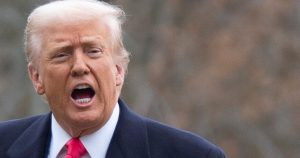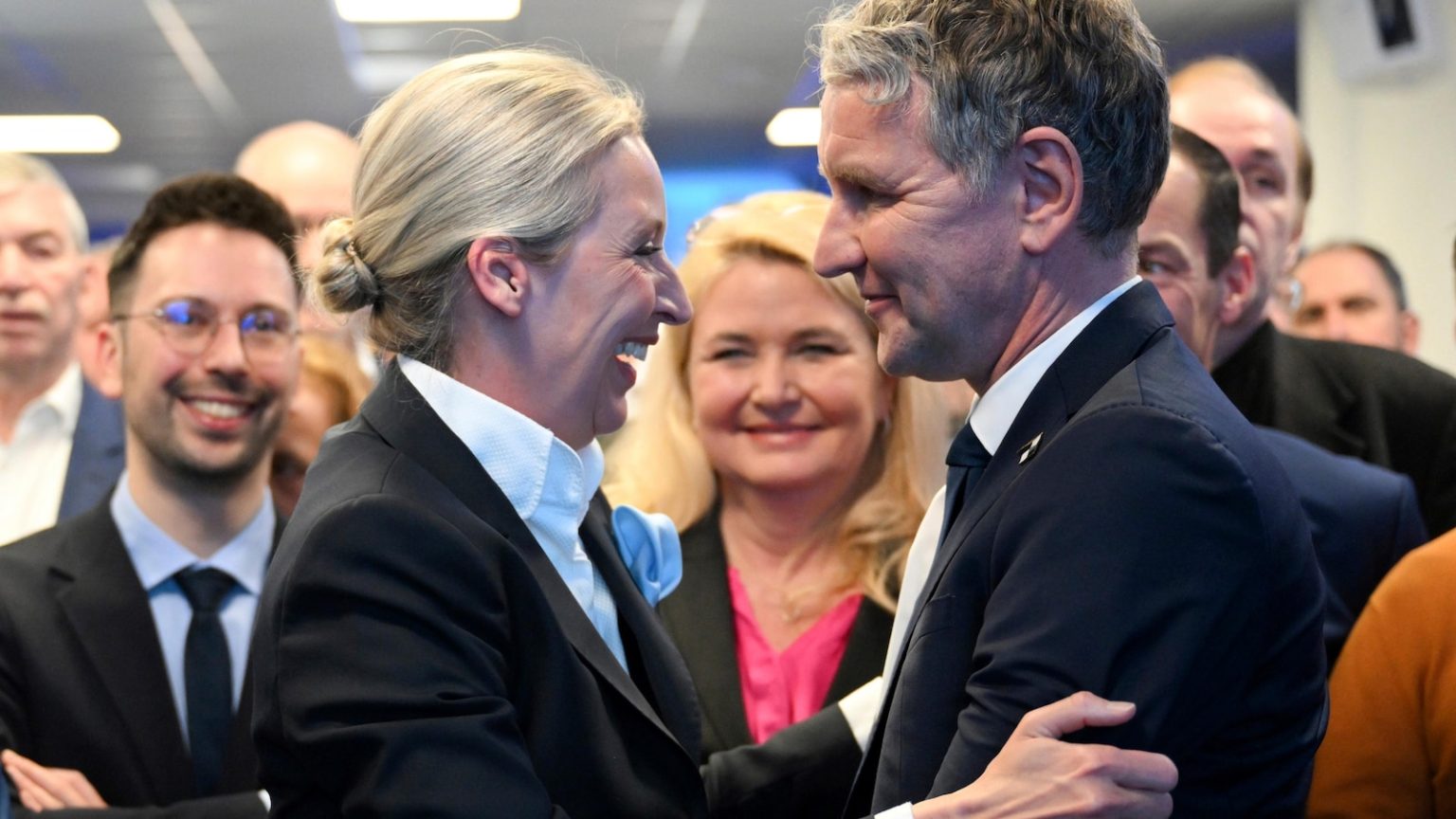A New Political Landscape in Germany: Merz’s Victory and the Rise of the Far-Right
Germany’s federal election on Sunday marked a significant shift in the country’s political landscape, with conservative leader Friedrich Merz securing a lackluster victory and the far-right Alternative for Germany (AfD) achieving its strongest showing since World War II. The election, held seven months earlier than planned, was triggered by the collapse of Chancellor Olaf Scholz’s coalition government in November. The results reflect widespread discontent among voters and a fragmented political climate, with no party securing a clear mandate to govern alone.
Merz, leader of the Union bloc (CDU/CSU), emerged as the winner but with a projected 28.5% of the vote, a far-from-resounding victory. His challenges are only just beginning, as he faces the daunting task of forming a stable coalition government. The election also saw the AfD more than double its support from 2021, securing approximately 20.5% of the vote. This historic result has sparked concerns about the growing influence of far-right ideology in Germany and its implications for the country’s political stability and European alliances.
The Challenges Ahead for Friedrich Merz
Friedrich Merz has expressed his ambition to form a coalition government by Easter, but this goal appears ambitious given the complexity of Germany’s political landscape. The Union bloc’s victory is tempered by the fact that it will likely need to form a coalition with at least one other party to achieve a majority. The most likely partners are Scholz’s Social Democrats (SPD) and the environmentalist Greens, but such a coalition would require careful negotiation and compromise.
The success of the AfD has further complicated the political picture. While Merz has repeatedly ruled out any collaboration with the far-right party, the AfD’s strong showing has widened divisions within the Union bloc. AfD leaders, emboldened by their historic result, have already begun to pressure Merz to adopt harder-line policies, particularly on immigration and foreign policy. However, Merz has remained firm in his opposition to working with the AfD, citing fundamental differences on issues such as security, Europe, and NATO.
The Union bloc’s ability to govern effectively will depend on its willingness to compromise with potential coalition partners while addressing the deep-seated concerns of voters. Merz has acknowledged the enormity of the task ahead, stating, “The world out there isn’t waiting for us, and it isn’t waiting for long-drawn-out coalition talks and negotiations.” His leadership will be tested as he navigates these treacherous waters and seeks to restore stability to Germany’s government.
The Far-Right’s Historic Surge and Its Implications
The Alternative for Germany (AfD) made history on Sunday by securing approximately 20.5% of the vote, more than doubling its result from the 2021 election. This marks the strongest showing for a far-right party in Germany since World War II, raising alarm bells about the normalization of extremist ideology in the country’s political mainstream. The AfD’s success reflects growing voter frustration with the political establishment and concerns over issues such as migration, economic stagnation, and national security.
AfD co-leader Tino Chrupalla declared, “We have achieved something historic today,” and claimed that the party has become the “political center,” leaving the fringes behind. However, this assertion is deeply contested, as the AfD’s rhetoric and policies remain firmly rooted in far-right ideology. The party’s candidate for chancellor, Alice Weidel, has signaled openness to coalition negotiations with Merz’s Union bloc, despite Merz’s categorical rejection of any collaboration.
The AfD’s rise poses significant challenges for Germany’s democratic institutions and its role in Europe. The party’s anti-immigration, eurosceptic, and nationalist platform is at odds with the values of the European Union and NATO, of which Germany is a key member. As the country prepares to play a central role in shaping Europe’s response to challenges such as the war in Ukraine and the evolving relationship with the United States, the influence of the AfD could have far-reaching consequences.
Scholz’s Social Democrats Suffer a Crushing Defeat
Chancellor Olaf Scholz’s center-left Social Democrats (SPD) suffered their worst postwar result in a national election, securing just over 16% of the vote. This marks a significant decline from the party’s previous low of 20.5% in 2017 and reflects widespread dissatisfaction with Scholz’s leadership and the performance of his government. The SPD’s poor showing is a bitter blow to a party that has long been a cornerstone of German politics.
Scholz conceded defeat on Sunday, acknowledging the “bitter election result” and the challenges it poses for his party. The SPD’s decline can be attributed to a combination of factors, including infighting within the party, a lack of clear direction, and the unpopularity of the outgoing coalition government. The party’s general secretary, Matthias Miersch, admitted that the defeat was not unexpected, stating, “This election wasn’t lost in the last eight weeks.”
The SPD’s poor performance has left the party grappling with its identity and purpose in a rapidly changing political landscape. The Greens, the SPD’s junior coalition partner in the outgoing government, fared somewhat better, securing around 12% of the vote. However, their result was still below expectations, highlighting the difficulties faced by progressive parties in connecting with voters.
Germany’s Role in Europe and the Broader Implications
Germany’s election results have significant implications for Europe and the wider world. As the most populous country in the European Union and a leading member of NATO, Germany plays a pivotal role in shaping the continent’s response to major challenges. The outcome of the election comes at a time of growing uncertainty, with the war in Ukraine ongoing and concerns about the future of the transatlantic alliance under the Trump administration.
The AfD’s historic result has raised concerns about Germany’s commitment to European integration and its relationship with key allies. The party’s eurosceptic and anti-immigration platform is at odds with the values of the EU and could complicate efforts to forge a united European response to global challenges. At the same time, the Union bloc’s victory ensures that Germany will remain a key player in European politics, even if its government is constrained by domestic political divisions.
Merz’s leadership will be closely watched as he seeks to navigate these challenges and restore Germany’s stability and influence on the world stage. The success of his coalition government will depend on its ability to address the concerns of voters while upholding the values of democracy, equality, and international cooperation that have defined postwar Germany.
The Road Ahead: Uncertainty and Opportunity
The outcome of Germany’s election has left the country at a political crossroads, with no clear path forward. While Friedrich Merz has emerged as the winner, his ability to form a stable and effective government remains uncertain. The rise of the AfD has introduced a new dynamic into German politics, challenging the country’s democratic traditions and its role in Europe.
The challenges ahead are formidable, but they also present an opportunity for renewal and reform. Merz has acknowledged the scale of the task before him, stating, “I am aware of the responsibility… I approach it with the utmost respect, and I know that it will not be easy.” His success will depend on his ability to unite a divided country and address the deep-seated concerns of voters, from economic stagnation to migration and national security.
As Germany looks to the future, the outcome of this election serves as a reminder of the ongoing evolution of its political landscape. Whether the country can rise to the challenges ahead and reaffirm its commitment to democracy and international cooperation remains to be seen. One thing is certain: the road ahead will be fraught with uncertainty, but it also holds the potential for transformation and growth.















